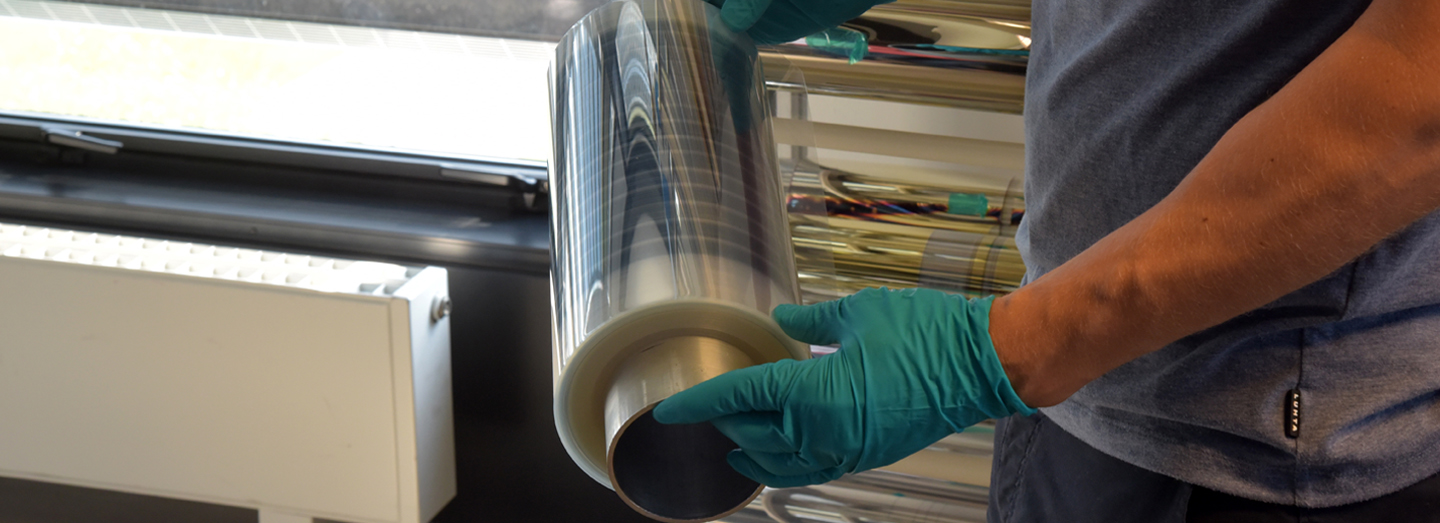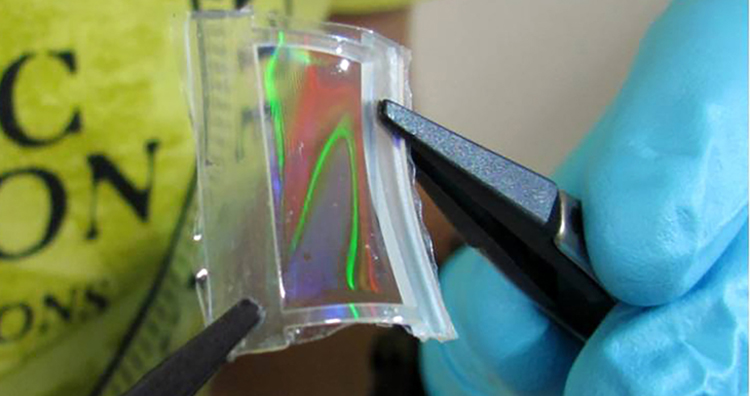
SDU to print cheap and ultra-thin solar panels
Researchers at SDU NanoSYD have succeeded in producing highly effective paper-thin organic solar panels. Now they will attempt to print out the solar panels in rolls several metres long so that the panels can be spread over roofs and cars.
By Birgitte Dalgaard, bird@tek.sdu.dk, 14-12-2016
The next generation of solar panels are as thin as paper. Bendable and transparent. Just like foil, they can be rolled out over house roofs and cars without compromising on aesthetics. Because they are so light, they can even be integrated into jackets so that we always have energy to hand if our mobile phone runs out of power.
- We have produced flexible solar panels with an overall thickness of 10 micrometres. That's the equivalent of 1.01 mm. The cost of production and materials for the organic solar panels are also very low. This means that the organic solar panels don't need funding legislation, says Associate Professor Morten Madsen from SDU NanoSYD.
Organic solar panels are expected to make a major popular breakthrough as they will be the first solar panels that can compete with the price of oil and natural gas. The challenge for researchers now is to scale the small laboratory-produced solar panels up to a size where they can be rolled out onto house roofs.
Printer to spit out solar panels
With a grant of 12 million DKK from EU funding which supports collaborations across borders, researchers have built up a new innovation project centre, RollFlex. The objective is to work out how to print out organic solar panels in large rolls, similar to the way large posters are printed.
- Today, organic solar panels can convert up to 13% of the sun's energy. But the efficiency of solar panels of just a couple of centimetres can be completely different when they are scaled up, explains Morten Madsen.
Danfoss PolyPower has donated a complete printing machine, a so-called roll to roll printer, to the RollFlex laboratory, and the researchers are now underway with experimenting with printing organic solar panels.

- We are testing different solutions and are trying to optimise every layer. The biggest problem with organic solar panels is their lifespan. When they are exposed to air and light, chemical processes occur. They oxidise. So we're trying to make improvements by adding chemicals that can make them more stable, says Morten Madsen.
Investment in the green changeover
Researchers in the laboratory at SDU NanoSYD are working on revolutionising the future's sustainable energy and giving Denmark a boost in reaching the target of being independent of fossil fuels by 2050.
- Our RollFlex laboratory is part of the investment in the changeover to green energy. We have a lot of large projects where we are researching technical solutions for better exploitation of energy while we are phasing out the use of oil and coal at the same time that the world's population is increasing, says professor Horst-Günter Rubahn, Head of Department of the Mads Clausen Institute.
The RollFlex research project runs until 2019, by which time researchers hope to be able to print out long rolls of organic solar panels so that everyone can own them. And there are signs that the organic solar panels' commercial breakthrough is getting closer.
- Research into organic solar panels has been going on for many years, but we are now experiencing an increasing interest from industry. Companies are beginning to see an actual breakthrough where solar panels are so stable and effective that they can be used commercially. For instance, there are several car companies who are interested in the technology, says Morten Madsen.
FACTS
- The innovation project centre RollFlex kicks off on 14th December.
- The project will receive 12 million DKK from Interreg Deutschland-Danmark and Syddansk Vækstforum.
- SDU is the lead partner and Christian-Albrechts-Universität zu Kiel (CAU), FUMT R&D Functional Materials GmbH and Stensborg A/S are project partners.
- There are also a number of Danish and German network partners.